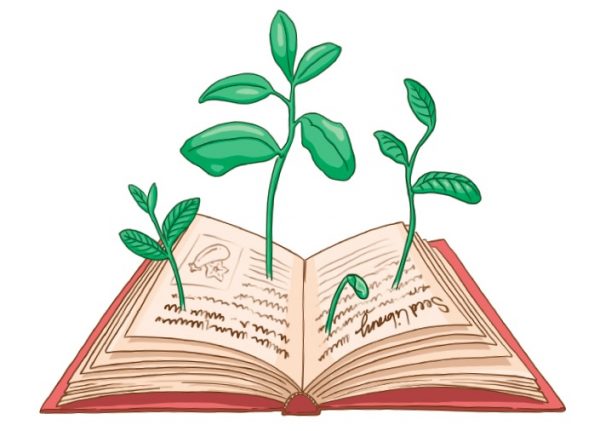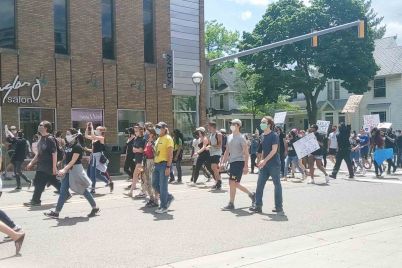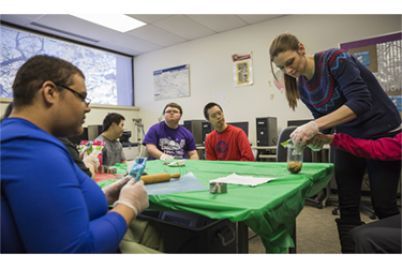
Gina Hewitt | Washtenaw Voice
Nicholas Ketchum
Deputy Editor
On Feb. 12 the WCC “Seed Library” began its 2019 season at the Bailey Library on campus.
Anyone—not just students—seeking locally-sourced organic seeds may “borrow” seeds from the Seed Library free of charge.
Indoor plant seeds are exclusively available until Mar. 13, when the full collection, which includes outdoor plants, will be stocked—including fruits, vegetables, flowers and herbs, most of which should grow outside.
Sandy McCarthy, a professional librarian at WCC, has been responsible for the seed library the past four years it has existed. According to McCarthy, the seed library has been popular with students, college employees and off-campus patrons.
“Last year was even bigger [than previous years],” she said. “When we opened, we had a line of people waiting patiently to use the library.”
Noa Iacob, a part time support staff member at Bailey Library, said she’s noticed substantial interest this year from patrons.
“People seem really excited,” she said. “We’d even like to have people bring in some photos so we can showcase them here.”
McCarthy said the motivation for hosting the collection is to promote the the act of growing personal food supplies and eating healthy, local foods.
“Our expectation is that it will get more people into growing their own food; trying to get them to be more sustainable and stop relying so much on buying food,” said McCarthy.
McCarthy has distributed flyers around campus calling attention to the seed library, and has enlisted the help of some professors in spreading the word, such as on Blackboard course sites.
As seed inventories deplete, McCarthy periodically restocks it with organic, non-GMO seeds from local distributors from around Ann Arbor.
Seed “returns” aren’t required. McCarthy said she doesn’t usually ask people to return seeds, but borrowers can donate seeds harvested from plants sourced from the seed library, if they’d like.
“We don’t push it because we aren’t sure if the seeds they bring back come from seeds they took,” said McCarthy. “We’re not experts; we don’t have the qualifications. We’ve said, ‘save the seeds for yourself and then grow some more next year and see if it works for you.’”
Iocab said the seed library will not close on a specific date; it will stay open during the warmer months as seed stocks remain, eventually closing later in the fall when supplies run out.
Anyone interested in taking seeds from the seed library can do so during Bailey Library hours. Borrowers should enter the number of packets taken and note the specific variety on a simple paper form, which sits atop the chest where the seeds are stored.
To find out more about the seed library and the seeds themselves, visit libguides.wccnet.edu/seedlibrary.
Feb. 12: Indoor seeds available
Mar. 13: Outdoor seeds available
Location: First floor of the Bailey Library


